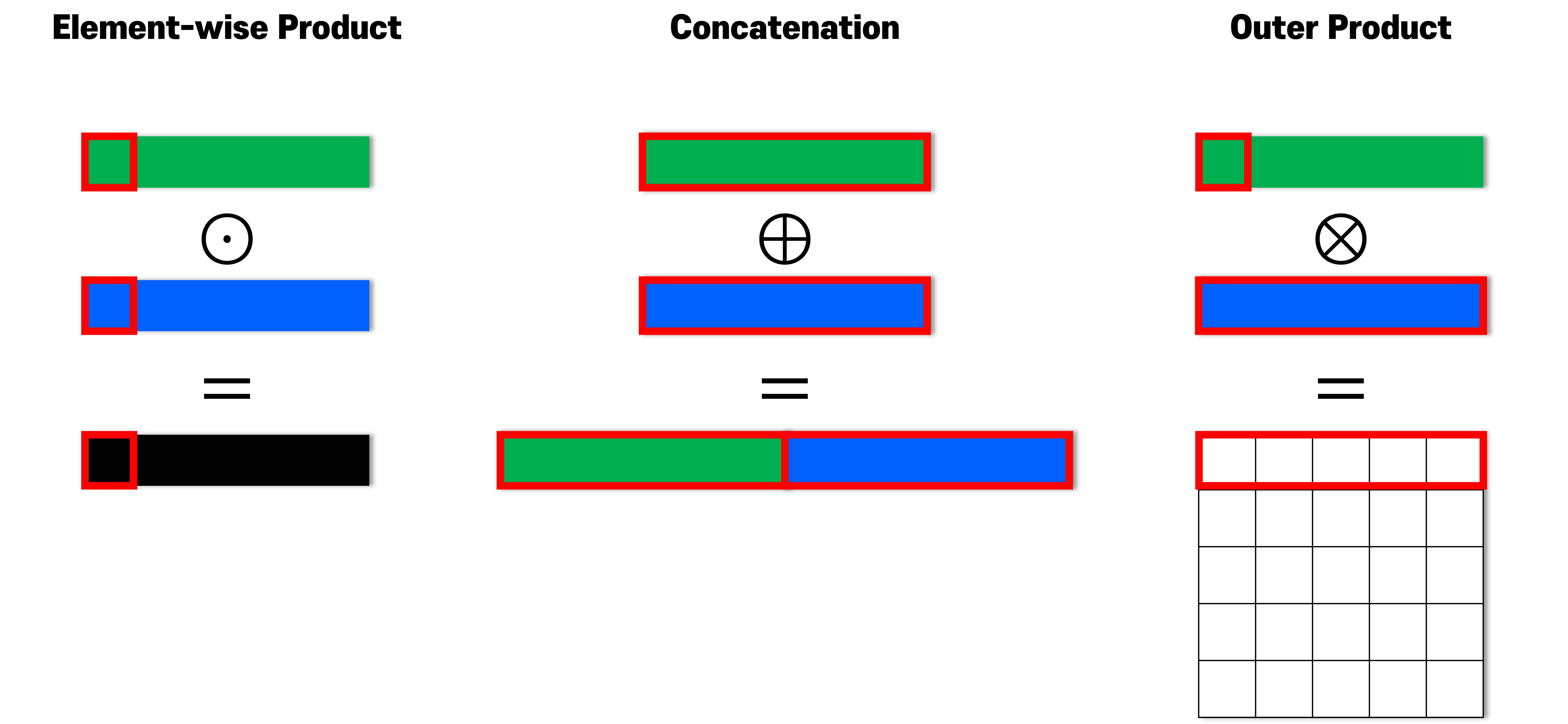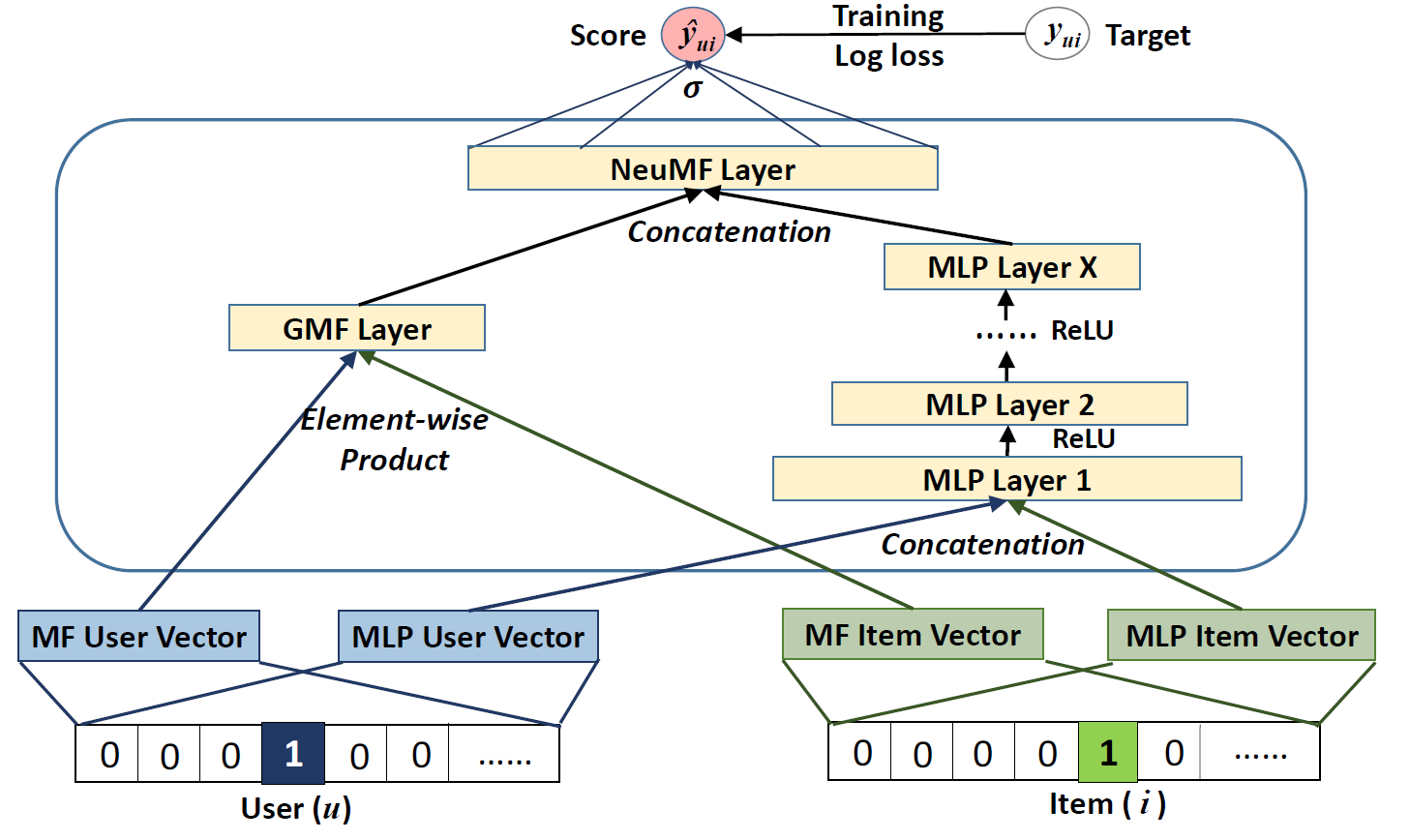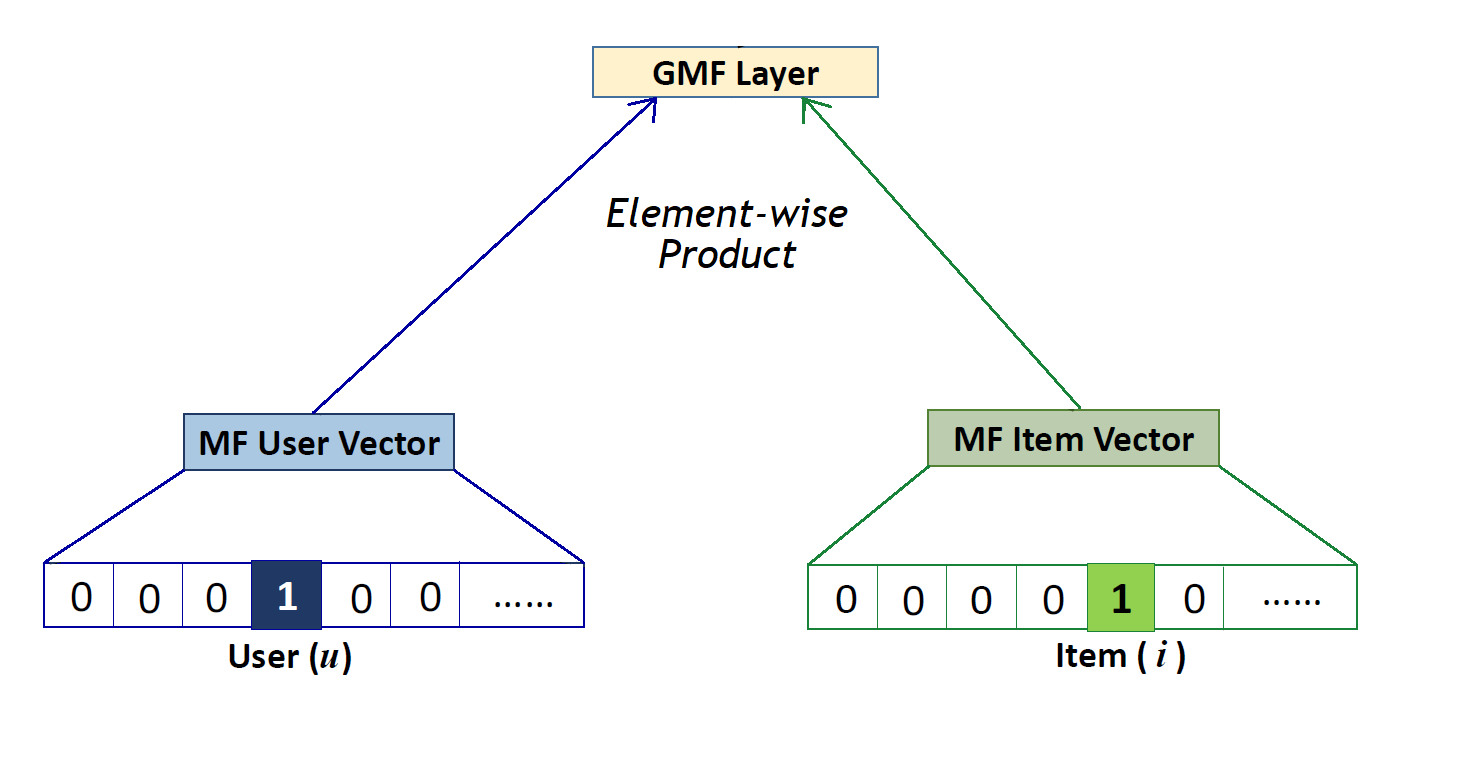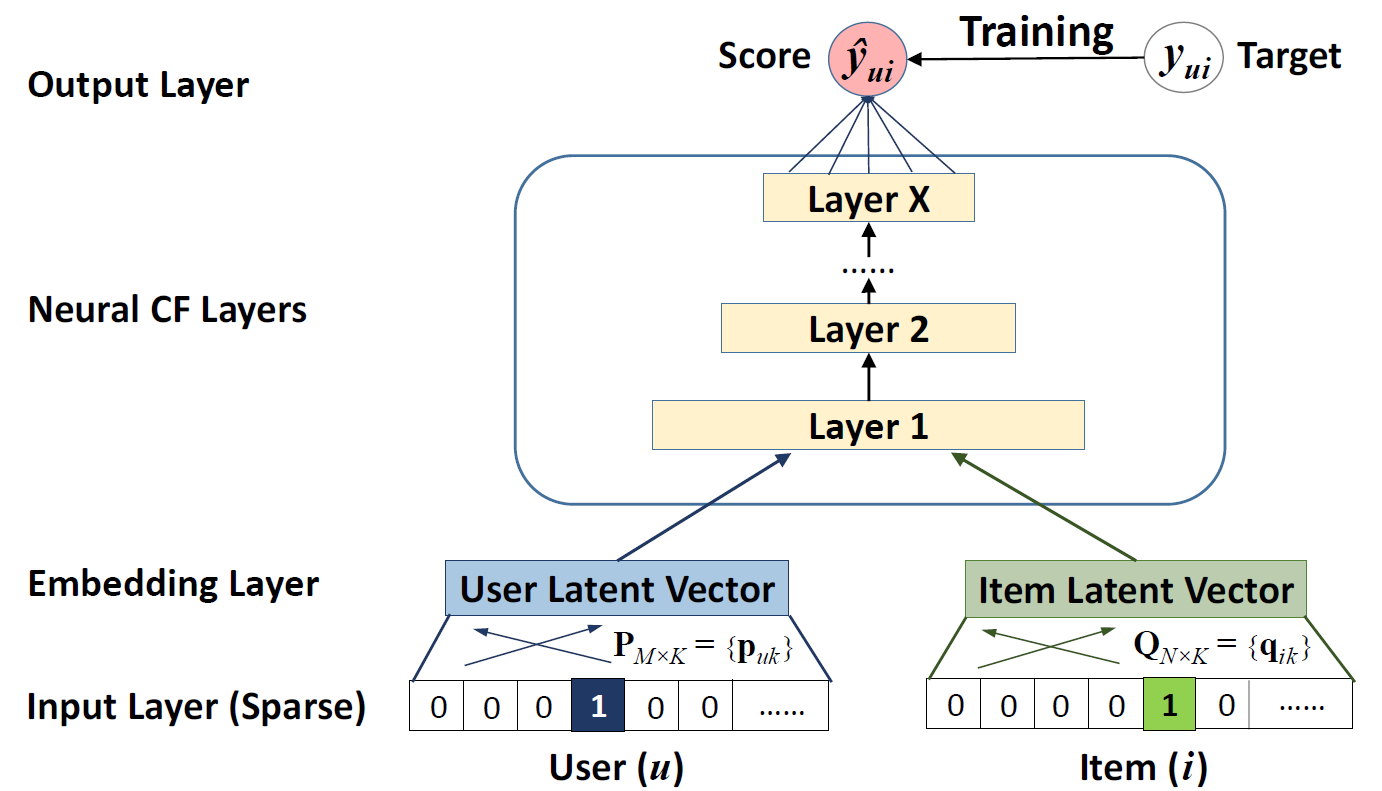ID Embedding based Latent Factor Model
Based on the following lectures
(1) “Recommendation System Design (2024-1)” by Prof. Ha Myung Park, Dept. of Artificial Intelligence. College of SW, Kookmin Univ.
(2) "Recommender System (2024-2)" by Prof. Hyun Sil Moon, Dept. of Data Science, The Grad. School, Kookmin Univ.
How to aggregate
- 요소별 곱(Element-wise Product): 두 벡터 간 상응하는 차원끼리 곱셈하는 방법
- 사용자, 아이템 잠재요인 공간 동일 가정
- 잠재요인 차원 간 독립성 가정
- 사용자-아이템 쌍별(Pairwise) 상호작용(Interaction) 신호 반영 표현
- 동일 차원 상호작용만 포착하므로 다차원 상호작용 반영 불가
- 벡터 결합(Vector Concatenation): 두 벡터를 결합하는 방법
- 사용자, 아이템 잠재요인 공간 독립 가정
- 사용자, 아이템 벡터 정보 보존 표현
- 모형이 사용자-아이템 쌍별(Pairwise) 상호작용(Interaction) 신호 직접 학습
- 외적(Outer Product): 두 벡터 간 외적하는 방법
- 사용자, 아이템 잠재요인 공간 동일 가정
- 잠재요인 차원 간 종속성 가정
- 그 대각성분은 요소별 곱셈에서 포착하는 동일 차원 간 상호작용 신호에 해당함
NeuMF
- 문제 의식: 내적(Inner Product) 기반 잠재요인 모형의 한계점
- 내적은 사용자와 아이템 간 동일 차원 상호작용을 포착하고 이를 단순 합산하는 방법임
- 사용자와 아이템 간 상호작용은 개별 차원에서 출력하는 신호 간에 경중이 있을 수 있음
- 사용자와 아이템 간 상호작용은 비선형적일 수 있고, 다차원 간에도 성립할 수 있음
NeuMF: 선형 매칭 함수 학습 모듈과 비선형 매칭 함수 학습 모듈을 병렬 학습하는 앙상블 모형- He, X., Liao, L., Zhang, H., Nie, L., Hu, X., & Chua, T. S.
(2017, April).
Neural collaborative filtering.
In Proceedings of the 26th international conference on world wide web (pp. 173-182).
- He, X., Liao, L., Zhang, H., Nie, L., Hu, X., & Chua, T. S.
- Components
GMF(GeneralizedMatrixFactorization) : 요소별 곱 기반 선형 매칭 함수 모듈NCF(NeuralCollaborativeFiltering) : 벡터 결합 및 다층 신경망(MLP) 기반 비선형 매칭 함수 학습 모듈NeuMF(NeuralMatrixFactorization) : GMF 와 NCF 의 예측 벡터(Predictive Vector)를 종합하여 예측을 수행하는 앙상블 모형
Notation
- $u=1,2,\cdots,M$: user idx
- $i=1,2,\cdots,N$: item idx
- $\mathbf{u}_{u} \in \mathbb{R}^{K}$: user latent factor vector
- $\mathbf{v}_{i} \in \mathbb{R}^{K}$: item latent factor vector
- $\mathbf{z}_{u,i} \in \mathbb{R}^{K}$: predictive vector of user $u$ and item $i$
- $\hat{y}_{u,i}$: interaction probability of user $u$ and item $i$
How to Modeling
-
\[\begin{aligned} \hat{y}_{u,i} &= \sigma(\mathbf{w} \cdot [\mathbf{z}_{u,i}^{\text{(GMF)}} \oplus \mathbf{z}_{u,i}^{\text{(NCF)}}]) \end{aligned}\]NeuMFisGMF&NCFEnsemble
GMF
-
ID Embedding:
\[\begin{aligned} \mathbf{u}_{u} &= \text{Emb}(u)\\ \mathbf{v}_{i} &= \text{Emb}(i) \end{aligned}\] -
Predictive Vector of user $u$ and item $i$:
\[\begin{aligned} \mathbf{z}_{u,i} &= \mathbf{u}_{u} \odot \mathbf{v}_{i} \end{aligned}\] -
If use
\[\begin{aligned} \hat{y}_{u,i} &= \sigma(\mathbf{w} \cdot \mathbf{z}_{u,i}) \end{aligned}\]GMFas a single prediction module:
NCF
-
ID Embedding:
\[\begin{aligned} \mathbf{u}_{u} &= \text{Emb}(u)\\ \mathbf{v}_{i} &= \text{Emb}(i) \end{aligned}\] -
Predictive Vector of user $u$ and item $i$:
\[\begin{aligned} \mathbf{z}_{u,i} &= \text{MLP}_{\text{ReLU}}(\mathbf{u}_{u} \oplus \mathbf{v}_{i}) \end{aligned}\] -
If use
\[\begin{aligned} \hat{y}_{u,i} &= \sigma(\mathbf{w} \cdot \mathbf{z}_{u,i}) \end{aligned}\]NCFas a single prediction module:
Source
- https://iq.opengenus.org/neural-collaborative-filtering/
This post is licensed under
CC BY 4.0
by the author.




